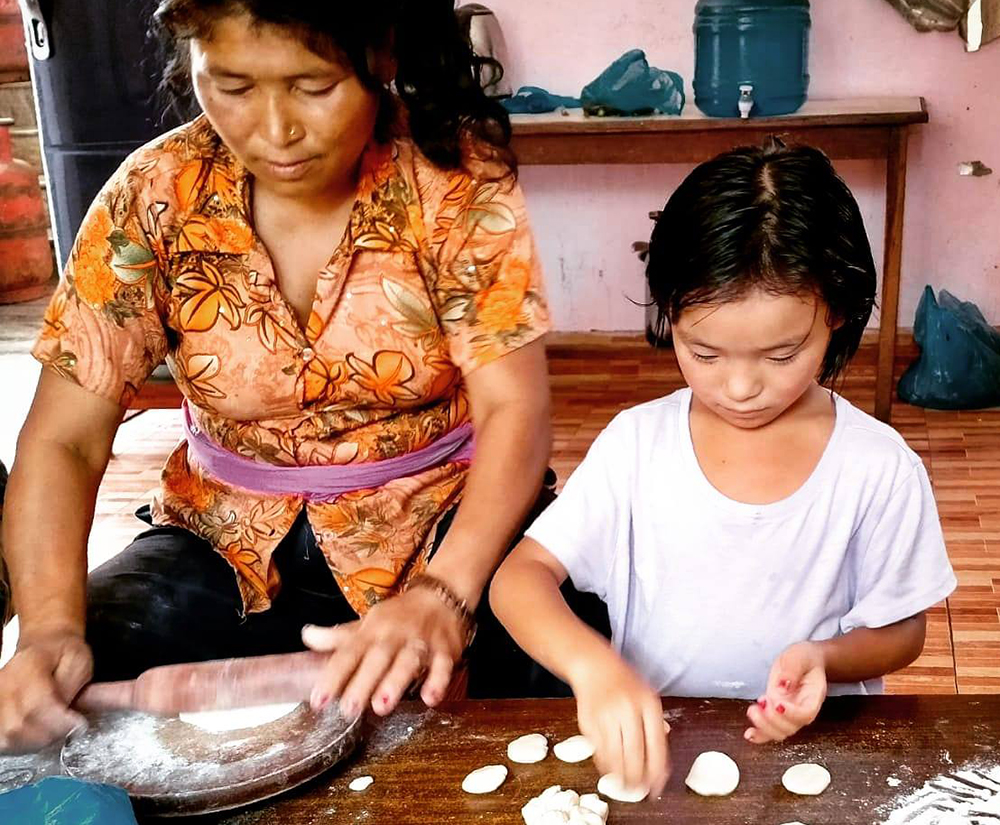
Jo Dowds looks at how Viva’s phone mentoring is helping families in Nepal reconnect again during the pandemic, thanks to the commitment of our partner network there.
Here in the UK, back in the 90s, a big phone company made billions with its advertising slogan – “It’s good to talk”.
The advertisers uncovered a universal truth about humanity that, as individuals share with one another, and enter a reciprocal relationship of exchanging ideas, skills, advice and simply ‘life’ with one another, those individuals develop deeper relationships.
Some 25 years later, amongst a global pandemic, Viva’s network development team has honed the same truth to enact change for a multitude of families.
Viva’s global phone mentoring programme is now active in 16 countries, with more than 1,000 mentors supporting over 6,000 families and 22,000 children.

What does Phone Mentoring look like in Nepal?
In Nepal, this programme has successfully mobilised 25 different organisations to enable 35 volunteers to work with 300 families during the months from August to October. (This is in addition to the 5,000 children and 5,000 adults impacted by the network’s Covid-19 relief response this year.)
Using six different themes such as mental health and resilience, staying safe at home and staying safe online, the programme has unlocked healthier patterns of living for families who experienced the pressured circumstances that Covid-19 has brought to many.
As volunteers phoned one parent and one child from vulnerable families each week, mis-information regarding Covid-19 was replaced with good information on how to implement preventative measures.
Parents and children were reminded that skills such as listening to one another and remaining calm under pressure are invaluable at a time when lockdown living conditions were becoming unbearable.
Parents were encouraged to take care of their own emotional health to best support the wellbeing of their children. Phone mentors were well placed and equipped to be there to listen and counsel appropriately.
As usual outlets for frustration and anger were restricted during lockdown, phone mentors combatted potential violence in the home by discussing anger management, positive discipline and preventing abuse with both parent and child.
As the phone mentoring programme drew to a close, parents and children were reminded of the joys of living life alongside each other as they were encouraged to share skills such as cooking, sewing, or crafting together during their lockdown period where access to other activities, friends or work was limited.

Participants’ Stories
Buddhist believer Lahar entered the phone mentoring programme as a reluctant participant. However, the warm approach from Lahar’s phone mentor and their gentle insistence on caring for Lahar and her family’s emotional and physical needs, has led Lahar to completely change her perspective on Christianity.
Lahar found the moral support of her phone mentor invaluable to help her family in time of financial and emotional strain. Not only that, but Lahar’s bond with her children has become so much deeper because of the programme.
Lahar has re-discovered the value of quality time with her children, finding ways to connect with them despite being the only financial source of income for her family through her job as a housekeeper.
Another phone mentor reports the immense privilege of enabling a reconciliation of relationship between a mother and her teenage daughter. Eighteen-year-old Ketak had cut herself off from family and friends, pushing her loved ones further away as she battled with inferiority complex, a growth disorder and low self-worth.
Through regular contact with her phone mentor, both Ketak and her mother were able to empathise more fully with each other. The programme deeply impacted Ketak and her mother with its message of building strong family relationships and of settling their fights.
Jesus’ Ambassadors
Peter encouraged the first Century church to cast all their anxieties on God because He cares for them (1 Peter 5: 7).
The phone mentors in Nepal have been Jesus’ hands, feet and listening ears to vulnerable families trapped by financial and emotional pressure during the ongoing Covid-19 pandemic.
They have demonstrated tangibly that God cares for each one and wants to hear the anxieties and concerns of their broken circumstances.
This simple programme has had a profound impact on the quality and health of family relationships in Nepal.
It really is good to talk.
Photos: CarNet Nepal
